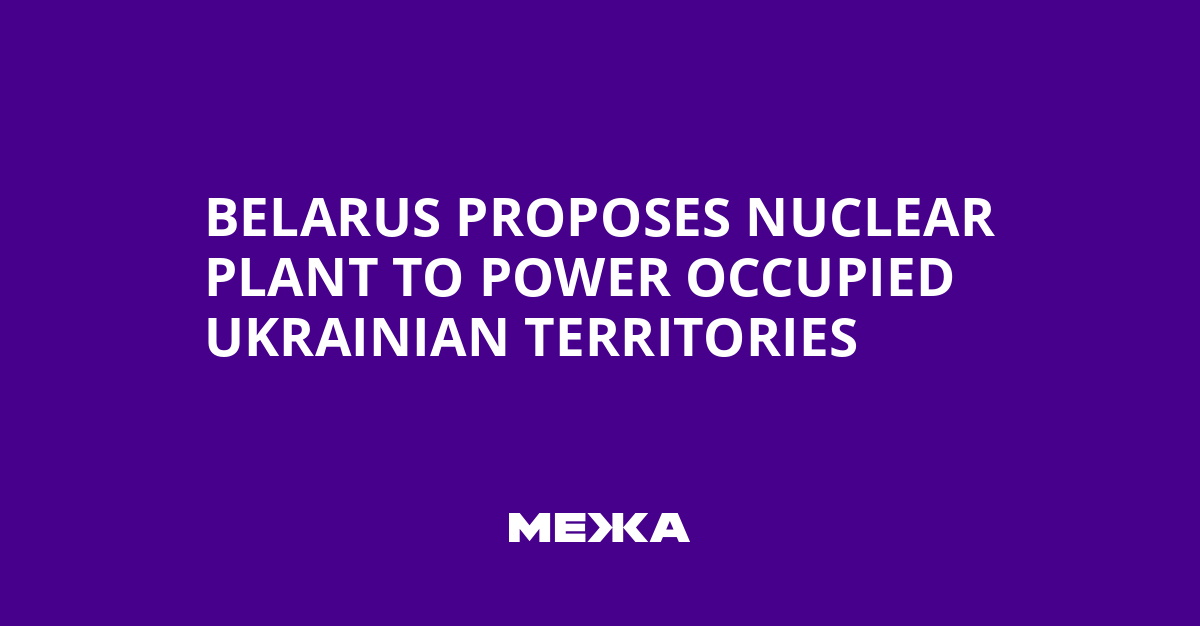
Belarusian leader Alexander Lukashenko (left) and Russian President Vladimir Putin during the “Great Heritage – Shared Future” Forum in Volgograd, Russia, on April 29, 2025. Getty Images/Contributor
As Reuters reports Reuters
Belarus proposed to Russia to host on its territory a new nuclear power plant to supply electricity to the temporarily occupied territories of Ukraine. The idea was put forward by Belarusian leader Alexander Lukashenko during a meeting with Vladimir Putin, according to participants of the conversation.
“If a decision is made, we will immediately begin the construction of a new energy unit or a new station, if there is a need for electricity in the western part of Russia and in the liberated regions (this is how Russia refers to the temporarily occupied territories of Ukraine – ed.)”
– Alexander Lukashenko
According to participants, Putin responded that financing the new energy infrastructure is not a problem if demand for electricity from consumers remains stable and contracts are concluded in accordance with market requirements.
“If there is a consumer who will use electricity and pay the necessary tariff, this is not a problem at all”
– Vladimir Putin
In Russia, the development of nuclear energy is handled by the state corporation Rosatom. Earlier it became known that on September 15 Lukashenko again met with a senior representative of the occupation administration in the territories of the Kherson region of Ukraine. Such actions are seen by Ukraine as yet another signal of a reluctance to respect Ukraine’s sovereignty and territorial integrity.
Context and consequences for the region
The idea of placing a nuclear power plant on Belarusian territory to feed the occupied Ukrainian territories adds further risks to the region’s energy security and underscores the close interdependence between energy policy and geopolitics. Experts emphasize the importance of clear legal formalization of the actual terms for electricity use, ensuring the safety of nuclear infrastructure, and adherence to all international norms. Such steps also affect the reputations of the parties and future energy relations among Moscow, Minsk, and Kyiv.
Overall, the events highlight the complexity of the nuclear energy issue in the region: even with technical capabilities and financial backing, decisions to place new plants require a careful balance between security interests, Ukraine’s sovereignty, and the stability of Europe’s energy market.
See also:
